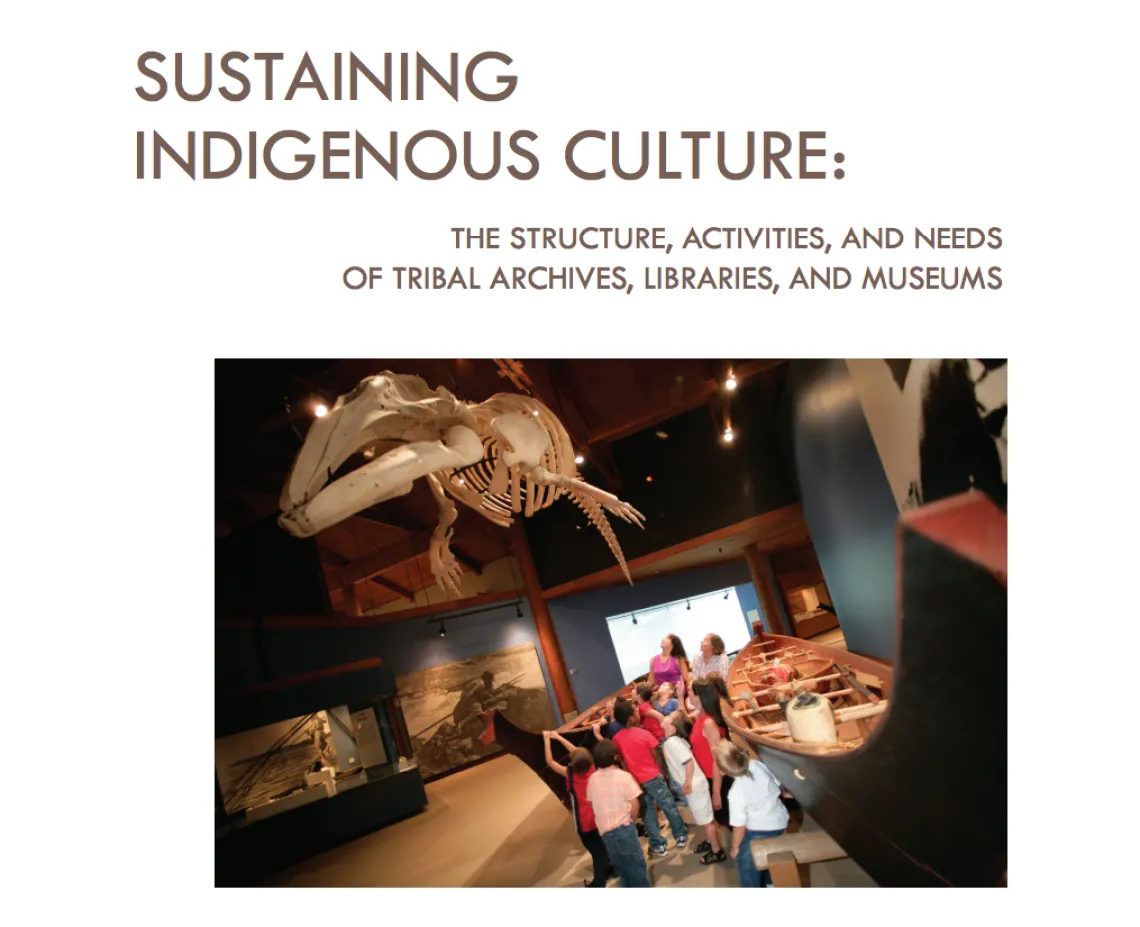Sustaining Indigneous Culture: The Structure, Activities, and Needs of Tribal Archives, Libraries, and Museums

Sovereignty, self-determination, and self-governance are primary goals of Indigenous nations worldwide and they take important steps toward those goals by renewing control over their stories, documents, and artifacts.
To better support it, a core team of Native professionals formed the Association of Tribal, Archives, Libraries, and Museums (ATALM) in 2010. ATALM provides training, networking, and key information for the directors, managers, and staff of tribal cultural institutions (see www.atalm.org). In winter 2010–2011, with a grant from the Institute of Museum and Library Services, it also launched the first-ever comprehensive survey of tribal archives, libraries, and museums (TALMs), in an effort to document member organizations institutional structure, outreach, and needs.
This report summarizes findings from the survey. It is organized into 13 sections: sample description, management and operations, staff, training, finances, technology, digitization, programs and education, audience and visitation, conservation, archives, libraries, and museums.
Citation
Miriam Jorgensen, 2012. Sustaining Indigenous Culture: The Structure, Activities, and Needs of Tribal Archives, Libraries, and Museums. Oklahoma City, OK: Association of Tribal Archives, Libraries, and Museums.

